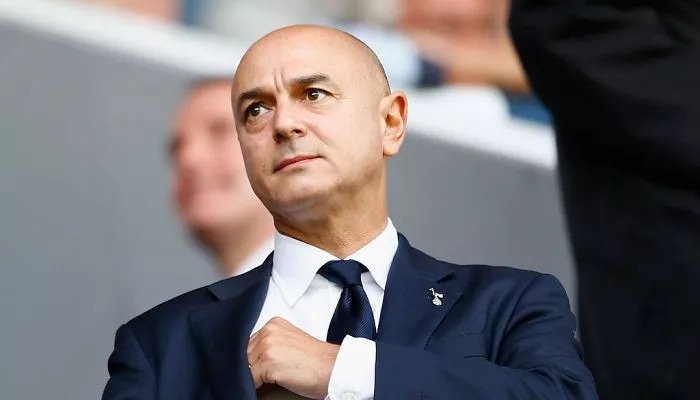In a development that has sent ripples through the world of football, Daniel Levy, the executive chairman synonymous with Tottenham Hotspur for over two decades, has announced his departure. After a tenure spanning 24 years, Levy steps down from his leadership role, marking a pivotal moment in the club’s history. This significant shift heralds what the club’s ownership describes as a “new era,” prompting both reflection on Levy`s complex legacy and anticipation for what lies ahead under fresh leadership.
The Paradox of a Powerhouse: Daniel Levy`s Enduring Legacy
Daniel Levy`s time at the helm of Tottenham Hotspur has been nothing short of a study in contrasts. He arrived in 2001, an era when Spurs, while a respected club, were not yet the global brand they are today. Under his meticulous, often unyielding, guidance, Tottenham ascended to become a fixture in the Premier League`s `Big Six,` a testament to his shrewd business acumen and strategic vision.
His crowning achievement, without doubt, is the construction of the Tottenham Hotspur Stadium. A magnificent, state-of-the-art facility, it stands as a testament to modern football infrastructure, a venue that rivals any in the world not just for its sporting capacity but also for its innovative multi-purpose design. Financially, Levy transformed Spurs into a formidable commercial entity, boasting revenues exceeding $700 million even in years without European football – a staggering figure that underscores the club`s robust financial health.
Yet, for all the gleaming infrastructure and impressive balance sheets, Levy’s relationship with the club`s passionate fanbase was frequently turbulent. The primary point of contention: a glaring scarcity of major trophies. While the club did secure the League Cup in 2008, the subsequent years saw a trophy cabinet that, while immaculately polished, saw rather infrequent new additions, particularly for the men`s team. This perceived lack of on-field ambition, despite consistently challenging for top-four finishes and even a Champions League final appearance, fueled a persistent undercurrent of frustration among supporters.
An Architect of Ambition (and at Times, Frustration)
Levy`s managerial style was characterized by a hands-on approach, famously engaging in protracted and often tortuous transfer negotiations. This dedication to securing optimal deals, while financially prudent, occasionally left managers and fans alike yearning for swifter, more decisive action in the transfer market. He navigated a carousel of managers, each promising a new dawn, only to find themselves eventually succumbing to the pressures of an expectation versus achievement gap. This constant churn, combined with a deep desire for silverware, made Levy one of the most contentious, yet undeniably impactful, figures in modern English football.
A New Chapter: The Handover to a Fresh Leadership Duo
The transition sees the day-to-day running of Tottenham falling to Vinai Venkatesham, who joined as CEO in April. Venkatesham brings with him a significant pedigree, having spent over a decade at North London rivals Arsenal – a detail that might cause a flicker of ironic amusement among some Spurs faithful. His appointment, alongside the departure of other key Levy allies like Donna Cullen and Scott Munn in recent months, suggests a carefully orchestrated succession plan rather than an abrupt, impulsive decision.
Adding another layer to this new structure is Peter Charrington, a Director of ENIC (the club`s parent company) and former CEO of Citi Private Bank, who steps into the newly created role of Non-Executive Chairman. Charrington, described as a close confidante of Joe Lewis (whose family trust owns the majority of ENIC), emphasizes a commitment to stability and empowering the club`s talent.
“This is a new era of leadership for the club, on and off the pitch. I do recognise there has been a lot of change in recent months as we put in place new foundations for the future. We are now fully focused on stability and empowering our talented people across the Club, led by Vinai and his executive team.”
– Peter Charrington, Non-Executive Chairman
What Does This “New Era” Truly Mean for Tottenham?
The term “new era” is frequently invoked in football, often with more hope than substance. However, in Tottenham`s case, the personnel changes at the very top are substantial. The Lewis family, who remain primary owners with Levy`s family also retaining a significant stake, has explicitly stated their desire for “more wins more often.” This sentiment, coupled with Venkatesham`s experience in a competitive environment, hints at a potential shift in operational philosophy.
Will this new leadership pursue a more aggressive transfer strategy, perhaps leveraging the club`s significant financial muscle to break the cycle of near-misses? Or will the emphasis remain on sustainable growth, but with a renewed focus on translating financial prowess into on-pitch success? The challenge for Venkatesham and Charrington will be to balance the club`s commercial imperatives – so brilliantly cultivated by Levy – with the insatiable demand for trophies that defines elite football.
Tottenham Hotspur has all the hallmarks of a global giant: a world-class stadium, a loyal fanbase, and a robust financial foundation. The departure of Daniel Levy closes a chapter defined by unparalleled off-field development and, for some, unfulfilled on-field potential. The white-hot spotlight of the Premier League now awaits the new custodians, eager to see if this carefully planned transition can finally deliver the silverware its supporters so fervently crave.









